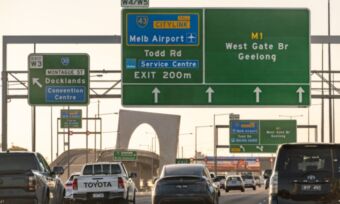Best car insurance
Finding the best car insurance for your needs and budget can take time and research. Fortunately, Canstar Research has made it easier by researching and comparing products from 43 different car insurance providers. The result is our 2025 Car Insurance Star Ratings and Awards, which are designed to help you in your search for the best car insurance for your needs.
You can use the table at the top of this page to compare comprehensive car insurance policies from our Online Partners to find the one that best fits your requirements. The table features Canstar’s expert Star Rating for each product rated, as well details such as whether you can opt for agreed value or market value coverage for your vehicle and whether you can pay by the month at no extra cost. Use the filters to adjust the table to show policies that match your requirements. The filters include options for different ages, locations, genders, features, discounts, cover options and after accident care as well as options for allowing an extra driver under the age of 25.
You can also specify other requirements, such as the Star Rating, provider, and whether or not they are a Canstar Online Partner, which means there is a button to click that takes you to the provider’s website so you can obtain a quote (we may earn a referral fee in this instance.)
Best car insurance: Outstanding Value Award winners
If you’re looking for the best value car insurance, Canstar’s Star Ratings and Awards could help. Five car insurance providers topped the list in Canstar’s 2025 Car Insurance Star Ratings and Awards:
Bingle
Bingle remains a strong performer in 2025, retaining its National Award while also securing the Western Australia State Award for Outstanding Value car insurance. Bingle continues to offer highly competitive premiums alongside policy flexibility with a range of optional extras such as unlimited excess-free windscreen and window glass cover, hire car coverage, and new car replacement for cars less than three years old.
Budget Direct
Budget Direct maintains Canstar’s national Car Insurance Outstanding Value Award for the 19th consecutive year in 2025, standing out for offering a strong combination of competitive premiums and high levels of cover. Budget Direct’s consistently strong performance across the market segments and consumer profiles considered as part of Canstar’s ratings methodology has secured its position as a provider of outstanding value to consumers.
ING
ING car insurance, a white-labelled product of Budget Direct, has retained its National Outstanding Value Car Insurance Award this year. Its policies provide a comparable value proposition to Budget Direct, offering comprehensive car insurance featuring a strong combination of competitive premiums and high levels of cover.
ROLLiN’ Insurance
ROLLiN’ Insurance has retained the National Award and the Queensland State Award, while also becoming a new recipient of the State Awards for New South Wales, Victoria, Tasmania and South Australia. ROLLiN’s competitively priced premiums on its month-to-month insurance policies are some of the lowest in the market, providing a high value-for-money car insurance option for consumers.
Virgin Money
Virgin Money car insurance, a white-labelled product of Budget Direct, has been recognised as offering outstanding value; delivering a strong combination of competitive premiums and high levels of cover.
View All Award Winners
Which type of car insurance is the best?
Before deciding which provider and policy to choose, it’s worth considering which type of car insurance will be best for your needs. There are three main types of car insurance available in Australia and they are described below. Deciding which is the best for you means thinking about factors such as the kind of vehicle you are insuring, the level of cover you need and your overall budget.
Compulsory Third Party (CTP) insurance
Compulsory Third Party (CTP) insurance is the most basic form of cover and is mandatory for all drivers who plan to use Australian roads. It protects you financially if you injure or kill someone in an accident but does not provide any cover for damage caused to other people’s property or your own vehicle.
Comprehensive car insurance
Comprehensive car insurance is the most extensive form of optional car insurance and includes cover for accidental damage to your own vehicle as well as damage to other people’s property. It also tends to cost more than other types of optional cover. Comprehensive car insurance may be suitable if:
- You want a high degree of financial protection for a broad range of risks, including damage to your vehicle from a car accident as well as some of the indirect costs associated with being without a car while it’s being repaired (e.g. rental car hire).
- You would find it difficult to cover the cost of repairing or replacing your vehicle by yourself.
- Your car is under finance, as some lenders will require you to have it adequately insured via a comprehensive policy.
Third Party Property Damage and Third Party Fire and Theft car insurance
Third Party Property Damage car insurance provides cover for damage caused to another person’s property—for example, if you caused a crash and damaged someone else’s car. Third Party Fire and Theft policies provide the coverage listed above as well as covering your vehicle if it is damaged by fire or stolen/damaged by thieves. Third Party car insurance may be suitable if:
- The repair or replacement value of your own car is relatively low and affordable within your budget.
- You could do without your own car while it’s off the road following an accident.
- You want a cheaper policy and are happy to sacrifice some of the extra cover you would get with a comprehensive policy.
How can I find the best car insurance policy?
Once you have decided on a type of cover, it’s worth spending some time comparing policies so you can find the best car insurance for your needs.
Here are some steps to consider:
- What’s included and excluded: While two of the best comprehensive car insurance policies from different providers may be relatively similar in terms of what’s covered, some policies offer cover for extra risks or come with helpful inclusions that others do not, such as roadside assistance. Similarly, some comprehensive policies will exclude risks that others don’t. Be sure to look at the amount of cover (limits) that’s included too, or in other words the maximum amount the insurer will pay out for particular situations.
- Check the premiums: Price certainly isn’t everything, but all other things being equal, a cheaper policy may be appealing. It may be worthwhile also looking at factors related to the premiums, such as any discount that applies for buying the policy online and being able to pay your premiums monthly at no extra cost.
- Don’t be afraid to negotiate: Insurance providers may have wiggle room to offer you a better price than what you’re initially quoted in some circumstances. This can be particularly true if you already have a policy and ask your current provider if it will be willing to reduce your premiums to keep you as a customer. Remember, if you don’t ask for a discount, you probably won’t get one.
- Consider ‘pay as you drive’ cover: If you don’t drive your car a lot, it might be worth taking a look at policies that charge premiums based on an estimate of how much you expect to drive (as opposed to a flat rate regardless of kilometres travelled), as this could work out cheaper. Or in some cases, providers use technology to charge customers based on how far you have actually travelled.
When weighing up car insurance policies, it’s a good idea to read the Product Disclosure Statement (PDS) and Target Market Determination (TMD) for each product, to ensure that it’s suitable for your situation. This can include understanding what is and isn’t covered and any limits that may apply.













